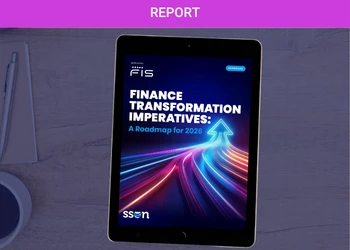Several years ago when I was CFO at a large corporate, we found ourselves in a boardroom reviewing the business case for implementing digitalisation into our retail business. The argument presented appeared convincing – very positive IRR, quick breakeven point, and overall compelling analytics. The discussions around the boardroom, however, made me reflect on the scope for the role of digitalisation within businesses and made me question whether its only benefit is as a cost saving mechanism.
Digitalisation does exactly what it says on the tin – it provides a digital route to customers and delivers lower cost. But as I thought about it, I realised that it has the potential to do so much more than play a transactional role.
The impact of digitalisation can be transformational if it is embedded throughout a business, as opposed to being implemented as a standalone digital customer channel. However, in the business case presented to us, there was a total focus on the transactional element of digital. This stems from the commonly held belief that in order to pass a business case, it is necessary to make a focused cost argument because Finance will not support a wider-reaching case where benefits are less straightforward to quantify.
This is the stumbling block with digitalisation. The digital theme is a new one with no history we can point to in order to prove how it can benefit businesses in the long run.
It is a challenge we, as CFOs, need to surmount by trying to break out of our current mindset in order to consider cases more strategically in terms of their wider-reaching impact on our businesses. It requires us to think beyond the old norms we’ve adhered to in order to assess cases more holistically, taking into consideration transformational capabilities. Alongside my team, I changed our approach which enabled us to create a more sustainable strategy with digital at its core.
Hand in hand with embracing digital, CFOs should start considering moving more transactional processes outside of their business allowing them to run independently, like a well-oiled machine. By outsourcing taxes, accounting ledgers and payroll for example, businesses can reduce cost and risk and can instead focus on their USPs. The company to whom you outsource can become a key partner for your organisation as they almost act as an extension of your own team.
In summary digitalisation should be treated as both transactional, helping businesses to reduce cost, as well as a transformational, enabling businesses to evolve. Outsourcing helps enable this by taking some of the burden off of the finance department and allowing them to fulfil governance needs at a lower cost by forming partnerships with specialist organisations.
[inlinead]
About Jens Madrian: Jens writes a regular column for SSON. Since joining Reactive Technologies in 2016 as Chief Financial and Chief Commercial Officer, Jens has made his mark by securing equity funding and driving Reactive’s strategic, financial and commercial development and growth. Prior to this Jens was CFO of RWE Npower, one of the big six energy retailers, and was responsible for meeting the energy needs of over 5 million customers, from individual households to SME and large industrial businesses. Connect with him on LinkedIn.























